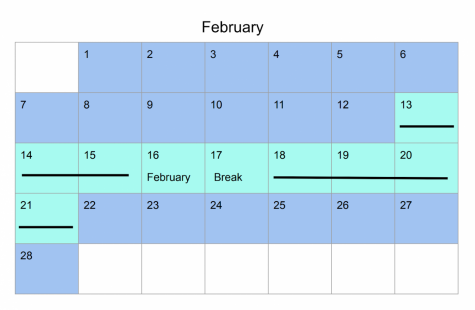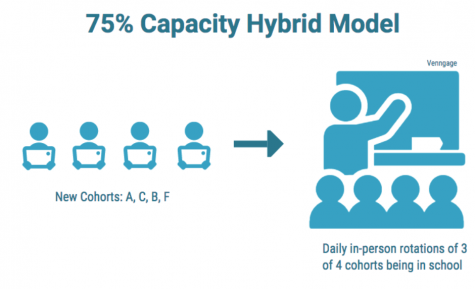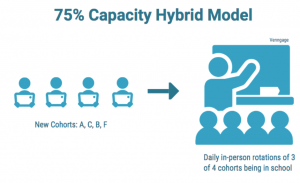APO requires upholding honesty
At the beginning of each period, teachers must go through their class list and appropriately mark each student with the corresponding attendance codes. With 12 unique options to choose from, a commonly used distinction this school year has been APO – absent, present online. It’s used to mark students who are part of the cohort in the building, but elected to participate in classes online for the day. Yet, is APO carrying out its originally intended purpose?
While sometimes a saving grace for health and safety purposes, APO is often misused by the student body. The administration’s new protocols help ensure that APO carries out its originally intended purpose; however, the determining factor on the success of APO replies on multidimensional honesty.
One of the main, original purposes of APO was to allow students who were feeling ill or unsafe to stay out of the building, but still participate in class and not miss instruction. I originally went APO in late November leading up to Thanksgiving break since cases were on the rise. Going APO for the two days in the week where one should be in the building is a good solution in this situation. High schools in neighboring towns of Darien and Greenwich have similar structures in place, which are beneficial to the student body and prioritize the health and safety of the whole district. For this reason, I salute the administration in maintain the function of APO.
However, it is evident that APO is used more frequently than students feeling unwell or unsafe. The biggest downfall is that I find the zoom screen is all the more full with people from both cohorts, in my calculus class for example, when it is a test day. It can’t be a coincidence. This use of APO, which has become a catalyst for cheating, violates the academic integrity policy and should not be tolerated.
The new, implemented policy is one layer that helps discourage this misuse of APO. First, parents are required to alter the attendance line for their child’s use of APO. They should have alert the attendance line 24 hours in advance of use the APO distinction. This will ensure APO is not used as a safety net for not preparing well enough for assessments.
Second, and as mentioned by the new APO policy, teachers reserve the right to have students make up assessments they miss due to being APO when they return to school. The APO Committee should go further to implement that only students in the “full remote” cohort and the cohort assigned the remote platform on the day of a test are allowed to take the test at home. All others should have to schedule with the teacher to take a different version of the test – to prevent cheating – the next time they are present in the building. What at first seems like a hassle, rather acts as a necessary deter for using APO dishonestly in the first place.
While the latter is plausible, there are always extenuating circumstances. For example, if a student wakes up with a sore throat, surpassing the 24 hour APO notice policy, they should prioritize health and safety and not put the rest of the building in jeopardy. Moreover, the policy is not perfect, but honesty can be.
While this shift in policy may see some changes in the frequency of using APO, it is a shift in student culture surrounding APO and a standard to uphold the academic integrity policy that is the true solution. Loopholes and exceptions in policy can and will be found, which is why students should take it upon themselves to uphold APO’s originally intended purpose through maintaining honesty both of their health and their academics.

Staff Writer Emma Dantas ’21 is an Inklings veteran. A staff writer since 10th grade, it was her initial love of sports that brought her to...



























































